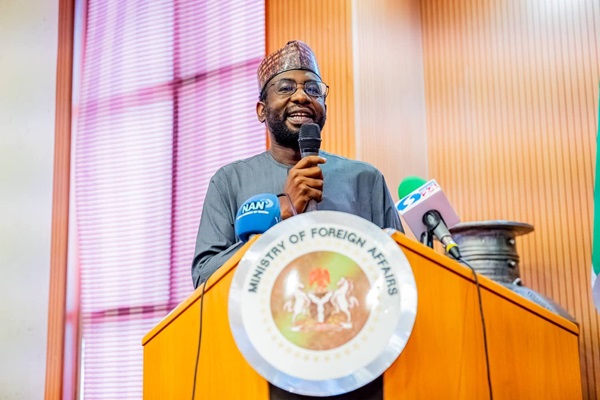
The director-general of the National Information Technology Development Agency (NITDA), Mallam Kashifu Abdullahi has called for stronger collaboration between civil society organisations (CSOs) and the government in advancing President Bola Tinubu’s ‘Renewed Hope’ agenda.
He said Nigeria’s current development journey demands shared responsibility, not blame.
Speaking at the first Civil Society Summit on Civil Democracy and National Development held at the Federal Ministry of Foreign Affairs in Abuja, Abdullahi emphasised that building a sustainable and inclusive economy requires the active involvement of all stakeholders, not just the government. He urged CSOs to shift from mere criticism to partnership, stating that meaningful progress hinges on collective effort. “There are things the government can do that civil society cannot and there are things civil society can do that the government cannot. But, together, we can achieve greater things,” he said.
Abdullahi outlined the eight pillars of the ‘Renewed Hope’ agenda, ranging from economic reform and national security to infrastructure, governance and social sector development – and stressed the need for national consensus to sustain momentum, regardless of political transitions. “If we agree on this vision, then we must move forward together, irrespective of who is in government. What matters is continuity of vision and the collective will to implement it,” he said.
He also highlighted the critical role of emerging technologies, particularly artificial intelligence, in transforming key sectors such as agriculture, healthcare and education. He noted that NITDA is currently partnering with the Ministry of Youth Development to deploy an AI-powered digital platform for citizen engagement, allowing young Nigerians to co-create policies that directly impact their lives.
According to him, technology can scale innovation rapidly, but without the will to act, good ideas remain idle. He also acknowledged the trust deficit between citizens and government, which he attributed to limited engagement. He stressed that building trust requires continuous interaction and mutual respect.
The summit created a platform for stakeholders to align on national priorities, deepen civic involvement and reinforce civil society’s role in shaping democratic governance and sustainable development in Nigeria.


